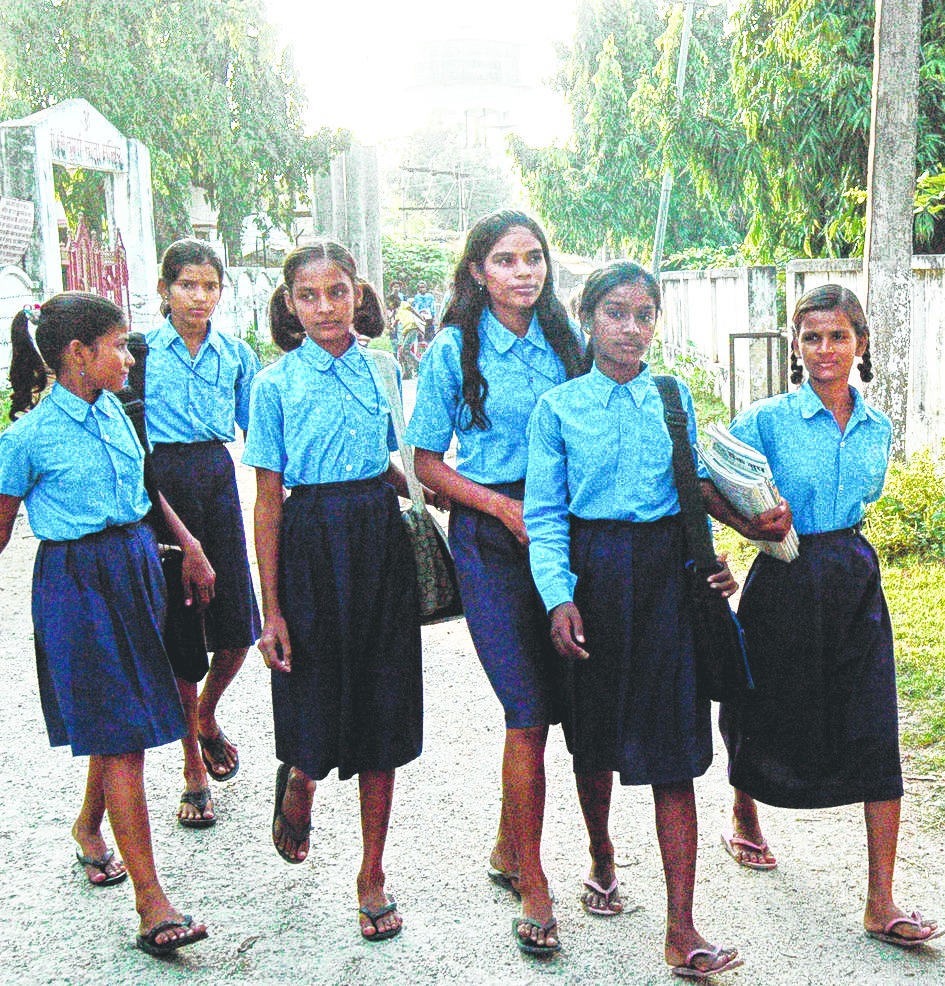
Adolescents enrolled in government schools would soon be given an iron folic acid tablets every week in an anti-anaemic drive.
The Centre rolled out the weekly iron and folic acid supplementation programme in 2013 to fight anaemia among school-going children. The target of the programme was the adolescents aged between 10 and 19 years. Bihar started the programme but terminated it after a few months because of the medicine purchase scam in the Bihar Medical Service and Infrastructure Corporation Limited.
The corporation is a wing of the health department that procures medicines for the government.
Now, the programme will be revived. Girls and boys enrolled in government schools and anganwadi centres will be given a blue iron folic acid tablet once a week. The pills will be given for 52 weeks.
Ravi Kirti Singh, a doctor in the medicine department of AIIMS-Patna, said: "Folic acid helps reduce incidents of congenital problems."
Y.N. Pathak, the programme officer for this project at State Health Society, Bihar, said: "The corporation had issued a tender earlier to revive the project. The bidding agencies, however, did not meet the drug's specifications. Now, a fresh tender will be issued and the formalities are expected to be complete in three months after which we would start giving iron folic acid pills to the children."
The revival of the programme is significant for Bihar because the last annual health survey data shows close to 80 per cent of adolescents in the state are anaemic. Experts said anaemia causes a lot of problems. V.P. Sinha, a physician at Patna Medical College and Hospital, said: "An anaemic person is unable to work to his/her potential and the immunity level also goes down. Besides, if the problem of anaemia is not countered at the adolescent stage for girls, it affects the child and the mother more during pregnancy."
An official of the state chapter of Unicef, which is supporting the programme, said: "For smooth running of the programme, the government needs to resolve the supplier issue. There should be coordination among the health, education and social welfare departments. The education department should be given the power to purchase medicines on its own so that even if the health department fails to procure the medicines, the programme is not discontinued in schools."
On why the course for the iron and folic acid supplements has been fixed at 52 weeks, the official added: "The course has been decided on the basis of dietary habits and the absorption capacity of iron and folic acid among children. Before deciding the period, tests were conducted among a sample of the target group to check for how long the iron and folic acid tablets could be administered to the adolescents."
Usha Kumari, the chairperson of Kumuduni Educational-cum-Charitable Trust, a NGO working for the education of downtrodden children, said: "The normal diet of these children is poor. Their iron requirements are hardly fulfilled in their diet. It is good that iron tablets would be provided to them, as it would help in their growth."










